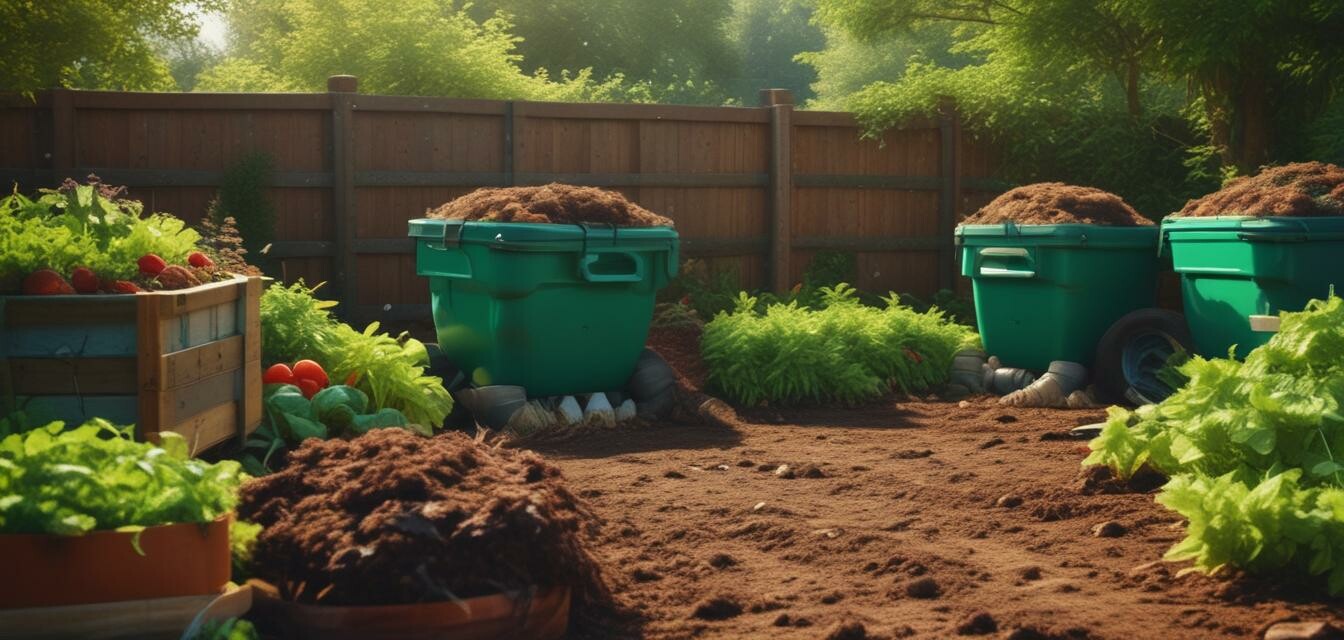
2024: A Year for Innovative Waste Solutions
Key Takeaways
- Composting is becoming a key part of waste reduction strategies in 2024.
- There is a rise in smart composters that facilitate easier composting.
- Community composting initiatives are gaining momentum.
- Understanding emerging trends is essential for sustainable living.
- Composting practices are evolving to use eco-friendly materials.
As we step into 2024, the strategies to combat waste and promote sustainability have evolved significantly. Composting, in particular, stands out as an effective practice within broader waste reduction initiatives. This article explores the innovations in composting and how they align with ongoing waste management trends.
The rising significance of composting in waste reduction
Composting has become more than just a gardening practice; it is now seen as a vital approach to minimizing waste. With landfills overflowing and the detrimental impacts of waste on our environment becoming clear, communities and individuals alike are taking initiative to incorporate composting into their waste management systems.
Innovative composting techniques
2024 is witnessing several innovative composting solutions that make it easier for people to get involved in eco-friendly practices. Here are some noteworthy techniques:
| Technique | Description | Benefits |
|---|---|---|
| Smart Composters | Technology-driven composters that automate and optimize the composting process. | Less manual work, quicker composting, and better results. |
| Bokashi Composting | A method using a fermentation process that works well in small spaces. | Reduces food waste and can be done indoors. |
| Community Composting | Shared composting facilities for neighborhoods or urban areas. | Encourages local collaboration and reduces collective waste. |
Smart composters transforming home composting
With smart technology infiltrating every aspect of our lives, it's no surprise that composting is also seeing a shift toward intelligent solutions. Smart composters allow users to monitor and control the composting process via apps or automated systems, making it easier than ever to contribute to waste reduction.
Benefits of smart composters
- Convenience: Automation saves time and energy.
- Efficiency: Consistent monitoring leads to better compost quality.
- Education: Many devices provide data on composting metrics, improving user understanding.
Impact of community composting initiatives
Community composting is on the rise as municipalities recognize its potential in promoting sustainable waste management. These initiatives not only help reduce landfill waste but also foster a sense of community and collaboration among residents.
Success stories of community composting
| City/Community | Initiative | Outcome |
|---|---|---|
| Seattle, WA | City-wide composting program | 20% reduction in landfill waste within a year. |
| San Francisco, CA | Neighborhood compost drop-off points | Increased accessibility led to high participation rates. |
| Portland, OR | Community garden composting | Enhanced soil quality and grown educational programs. |
Emerging materials for sustainable composting
As composting methods evolve, so too do the materials being used within them. 2024 is seeing a trend towards more sustainable, eco-friendly materials that simplify the composting process while boosting sustainability efforts.
Examples of eco-friendly materials
- Coffee grounds: An excellent carbon source enriched with nitrogen.
- Eggshells: Provides calcium and helps to balance pH levels.
- Wood chips: Helps aerate and structure compost.
The future of composting
As composting practices continue to develop, it's vital to stay informed about the latest trends and technologies. Not only do they make composting more accessible, but they also encourage more individuals to embrace sustainable habits.
Advice for newcomers
Tips for getting started with composting
- Begin small; start with kitchen scraps and gradually expand.
- Research local composting regulations and available resources.
- Join a local composting group to learn from experienced composters.
- Explore various composting methods to find what suits your needs.
Conclusion
2024 is set to be a pivotal year for waste management strategies, particularly in the realm of composting. By recognizing the importance of composting and adopting innovative approaches and materials, individuals and communities can significantly contribute to waste reduction and a healthier planet.
Pros
- Environmentally friendly waste management solution.
- Reduces landfill overflow, contributing to sustainability.
- Promotes community engagement and collaboration.
- Innovative technologies make composting easier and more efficient.
Cons
- Initial setup costs for smart composting solutions.
- Requires ongoing commitment and education.
- Potential smell or pests if not managed properly.
For those interested in further expanding their composting knowledge and exploring various methods, be sure to check out our buying guides for composters and articles on composting news and trends in composting.